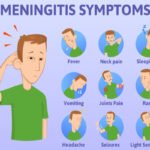Adequate physical activity and avoiding caffeine can help counter this condition
New Delhi, June 19, 2017: Are you one of those who finds your legs jerking uncomfortably in the evening or at night and getting a disturbed sleep as a result? If yes, you are not alone. You may be suffering from Restless Leg Syndrome (RLS), which is a disorder causing a strong urge to keep moving the legs. This is a common disorder affecting many today. Occurring mostly in middle-aged or older people, RLS also causes distress or impairment in social, occupational, educational, and academic behaviour.
RLS is a neurological movement disorder of the limbs and is often associated with a sleep complaint. Those with RLS have an almost irresistible urge to move their legs. Though it is not painful, this condition can be quite bothersome and lead to significant physical and emotional disability with the symptoms showing up at least thrice a week.
Speaking about this, Padma Shri Awardee Dr K K Aggarwal, National President Indian Medical Association (IMA) and President Heart Care Foundation of India (HCFI) and Dr RN Tandon – Honorary Secretary General IMA in a joint statement, said, “A strange and unpleasant feeling in the legs can result in a constant urge to move them. The feeling is very creepy-crawly with pulling of muscles, itching, tingling or burning sensation, aches or even electric-like shocks at times. The syndrome strikes when a person is at rest or inactive and can worsen in the evening or at night. This in turn can leave one tired and sleepy during the day and affect daily activities. Many people even find it difficult to understand the abnormal sensation in their legs.”
While primary RLS can have a genetic cause, secondary RLS may be due to peripheral neuropathy, iron, folate, magnesium, or Vitamin B12 deficiency, rheumatoid arthritis, Parkinson’s disease, kidney failure, diabetes, venous disorder, thyroid disorder, or a neurological disorder. Few things that can further worsen this condition include antidepressants, painkillers, alcohol, and caffeine. Exercise and avoiding certain things such as caffeine can help bring relief for those with RLS.
Adding further, Dr Aggarwal, said, “One can use compression stockings, which come in various sizes and shapes, as a relief measure for this condition. Stockings with strong elastic can make your legs feel lighter and improve blood flow from the lower limbs to the upper limbs.”
Here are some other tips to counter RLS.
- Reduce or avoid consumption of coffee, tea, soft drinks and other caffeinated foods.
- Avoid taking any form of stress and practice meditation techniques. Daily stretching and meditation can promote relaxation.
- For those in a job that requires sitting at a place for long hours, it is a good idea to go for short walks in between work. Choose the stairs instead of the lift.
- Make dietary changes and eat food that is rich in iron.







